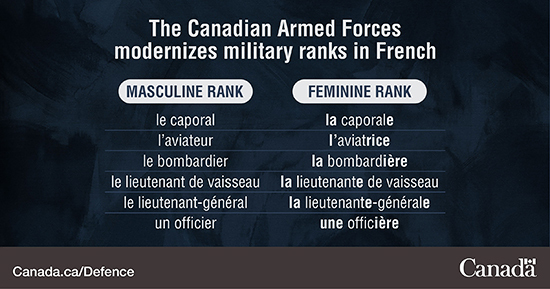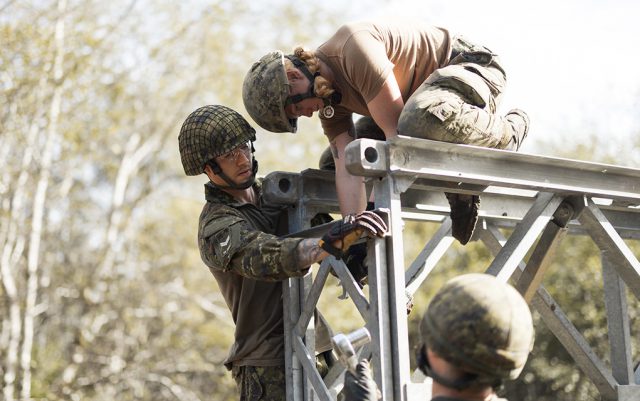Sergente, Majore, Lieutenante: these words will soon become common-place in the Canadian Armed Forces (CAF) French vocabulary. Beginning this month, members can be addressed by the French version of the rank that they feel best represents their gender identity.
The change towards inclusive ranks in French is a long-awaited move that will further demonstrate the CAF’s commitment to inclusivity and gender diversity.
For example, in April 2021, the CAF announced the creation of the new position of Chief Professional Conduct and Culture, but at that time, in French, the head of the organization, “le lieutenant-général Jennie Carignan,” could only be addressed by the masculine rank.

Now, a list of feminized military ranks will become available for administrative use by the CAF, beginning this month. Each individual member of the CAF will be able to choose the designation of rank, listed below, that they feel best represents them and their gender expression. Gender diverse members can also choose to apply changes to the listed ranks, such as removing the article or modifying the adjective(s), to best reflect their gender identity and gender expression.
The beginnings of feminisation for official Francophone titles in Canada date back to the 1960s. At the Canadian political level, the Right Honourable Adrienne Clarkson (1999-2005) was the first Governor General to be addressed with a feminine designation. But inclusive ranks in French have not been implemented in the Canadian military until now, and all members have only been addressed by masculine ranks.
“The modernization of military ranks ensures that CAF members have options, and can be addressed in a way that reflects who they are.” said MGen Lise Bourgon, Acting Chief of Military Personnel. “Having inclusive ranks reflects our commitment to the military ethos, ‘Respect for the dignity of all persons.’”
Modernizing the ranks in French is one of a number of initiatives being undertaken by the Defence Team in order to help us achieve an environment in which all members see and experience the respect they deserve.
Source: The Maple Leaf






